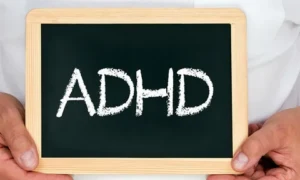Millions of people worldwide suffer from Attention Deficit Hyperactivity Disorder (ADHD), a neurodevelopmental disorder. Although it can present considerable difficulties in day-to-day living, people with ADHD can lead successful and meaningful lives if they receive the appropriate support and strategies. This article covers a variety of effective strategies for managing ADHD, including time management, organization, emotional regulation, and lifestyle modifications.
Recognizing ADHD
The symptoms of impulsivity, hyperactivity, and inattention are what define ADHD. These signs can take many different forms, including inability to concentrate, forgetfulness, excessive fidgeting, and rash decisions. It’s critical to understand that everyone with ADHD is affected differently; some may primarily battle with inattention, while others may be more hyperactive and impulsive.
Diagnosis and Expert Assistance
Accurately diagnosing ADHD is the first step toward effective management. A comprehensive assessment by a medical specialist, like a psychologist or psychiatrist, can help define the illness precisely and customize a course of treatment. Therapy, medicine, or a mix of the two may be part of this regimen.
Medication Administration
Taking medication can help you effectively manage the symptoms of ADHD. Methylphenidate (Ritalin) and amphetamine-based pharmaceuticals (Adderall) are examples of stimulant medications that are frequently prescribed and have the potential to greatly increase focus and decrease hyperactivity. Another choice would be non-stimulant drugs like atomoxetine (Strattera). To determine the appropriate drug and dosage, close collaboration with a healthcare provider is necessary.
Counseling and Behavioral Therapy
People with ADHD can benefit from behavioral therapy, especially Cognitive Behavioral Therapy (CBT), which helps them better regulate their emotions and create coping mechanisms. Problems with time management, relationships, and procrastination can all be addressed in therapy. Additionally, counseling can offer a secure setting for talking about emotions and experiences pertaining to ADHD.
Strategies for Organizations
Being organized is frequently quite difficult for those with ADHD. Putting certain tactics into practice can have a big impact:
Use Planners and Calendars: Using a planner or digital calendar to record assignments, meetings, and due dates will help you remember crucial occasions and obligations.
Make checklists: Dividing work into smaller, more manageable phases and marking them off as finished will help you feel accomplished and keep your efforts moving forward.
Regular decluttering can help to cut down on distractions and make it simpler to locate items when you need them.
Create Routines: Creating a sense of predictability and order can be achieved by establishing regular daily routines.
Time-Management Strategies
Since people with ADHD sometimes deal with procrastination and time blindness, or a skewed perception of time, time management is essential for them. The methods listed below may be useful:
Employ Timers and Alarms: Timers that are set for particular tasks might help you stay on task and generate a sense of urgency. Alarms can also serve as a reminder for forthcoming appointments or changes.
Tasks can be less intimidating if they are broken down into smaller, more manageable chunks. This is especially true for huge tasks.
Set Priorities for Your chores: By determining which chores are most crucial to complete first, you can make sure that your most important obligations are taken care of.
Use the Pomodoro Technique: This can help you focus and be more productive. Work for 25 minutes, then take a 5-minute break.
Emotional Control and Awareness
For those with ADHD, emotional control can be difficult, which can result in problems including impulsivity and mood swings. It can be advantageous to engage in emotional management techniques such as mindfulness:
Mindfulness Meditation: By fostering greater awareness of one’s thoughts and emotions, mindfulness techniques can help one better regulate one’s emotional reactions.
Exercises for Deep Breathing: Methods such as deep breathing help lower tension and give people a minute to calm down before acting rashly.
Journaling: Putting ideas and feelings down on paper might help you process them and see patterns in your emotions.
Seeking Support: Discussing emotional difficulties with friends, family, or a therapist can offer fresh insights and validation.
Creating a Network of Support
An effective support system is crucial for people with ADHD. Family, friends, coworkers, and experts like coaches and therapists can all be a part of this network. Open communication about ADHD and its difficulties can enable others to comprehend and offer the required assistance.
Workplace and Educational Accommodations
Workplaces and educational institutions can provide adjustments to help people with ADHD. These could be more time for exams, the choice to work in a more serene setting, or adjustable work schedules. Securing these adjustments can greatly enhance one’s achievement in the classroom and in the workplace.
Modifications to Lifestyle
Additionally, a few lifestyle changes can aid in the management of ADHD symptoms:
Exercise Frequently: Engaging in physical activity can help with focus, hyperactivity reduction, and general wellbeing. Exercises such as yoga, running, and team sports can be especially helpful.





